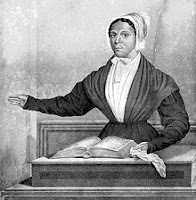
Are Christians too opinionated? Let me tell you what I think.
I’ve been reading my way through the first three volumes of IVP’s "A History of Evangelicalism" at the same time as reading Stephen Fry’s autobiography "Moab is my Washpot". Evangelicalism at heart has always been a populist movement. Stephen Fry is at his most engaging when he is at his most opinionated. His outbursts on music, sport and sex are hugely entertaining.
It tends to be true that the most popular, most arresting communicators are the most forthright. Consider Alan Green’s football commentaries, Geoffrey Boycott’s observations on English Cricket and Mark Kermode’s film reviews. (I listen to Radio 5 Live more than I should.)
Similarly the most effective at reaching the masses with the gospel have been straight talking. Consider John Wesley, George Whitfield, Charles Finney, Hannah More, Charles Spurgeon and Billy Graham. Like Green, Boycott and Kermode they were also controversial.
Trouble is lots of us are understandably uncomfortable with some expressions of Christianity (and forms of evangelicalism in particular) because they so easily shade over from being opinionated to being stridently dogmatic (consider for instance some of the pronouncements of the deeply unattractive organisation Christian Voice) and because they quickly descend from seeking to be accessible to becoming cheaply populist (consider the kind of evangelistic campaigns of the likes of Morris Cerrullo).
However, I fear that in reacting (quite rightly) against such expressions of the faith we run the risk of being far too diffident about speaking up for The Way. Many of the emergent types who get so much else right are too half-hearted when it comes to seeking to persuade others to follow Jesus. While on holiday I also got round at last to reading Rob Bell’s "Velvet Elvis". Bell is no mean populist himself and Velvet Elvis is full of straightforward, good sense and it presents an attractive picture of Christian faith. But like many of those singing from the same hymn sheet he is less than enthusiastic when it comes to (verbal) evangelism.
Are we capable of being popular with out being populist?
Can we be appropriately opinionated or is it a choice between cock-sure arrogance and mealy-mouthed equivocating?
This is where Stephen Fry gives me hope. There’s no doubt about it, he is both opinionated and popular. But, it seems to me, he’s also very attractive. He pulls this off because as well as being forthright he is vulnerable; as well as being straight-talking he is self-critical; as well as being passionate he is well-informed. Some important lessons here I reckon.
The clear expression of passionately held opinions is an effective way of provoking reaction and opening up debate which is a good thing … as long as we welcome that debate and are ready to engage in a well informed generous and open-minded manner.
 A busy week this - so not so much a post as an excuse for not posting. And a heads up for the next few weeks. My turn to do a month's worth of comment pieces for the Baptist Times' "Outside Edge" column has come round again. I don't reckon I'm up to both a weekly newspaper article and a weekly blog post so I'm copping out. With the agreement of the editor I'm going double up and post my BT article. This means that the blog will have a slightly different feel. To chek out the Baptist times as a whole click here
A busy week this - so not so much a post as an excuse for not posting. And a heads up for the next few weeks. My turn to do a month's worth of comment pieces for the Baptist Times' "Outside Edge" column has come round again. I don't reckon I'm up to both a weekly newspaper article and a weekly blog post so I'm copping out. With the agreement of the editor I'm going double up and post my BT article. This means that the blog will have a slightly different feel. To chek out the Baptist times as a whole click here



